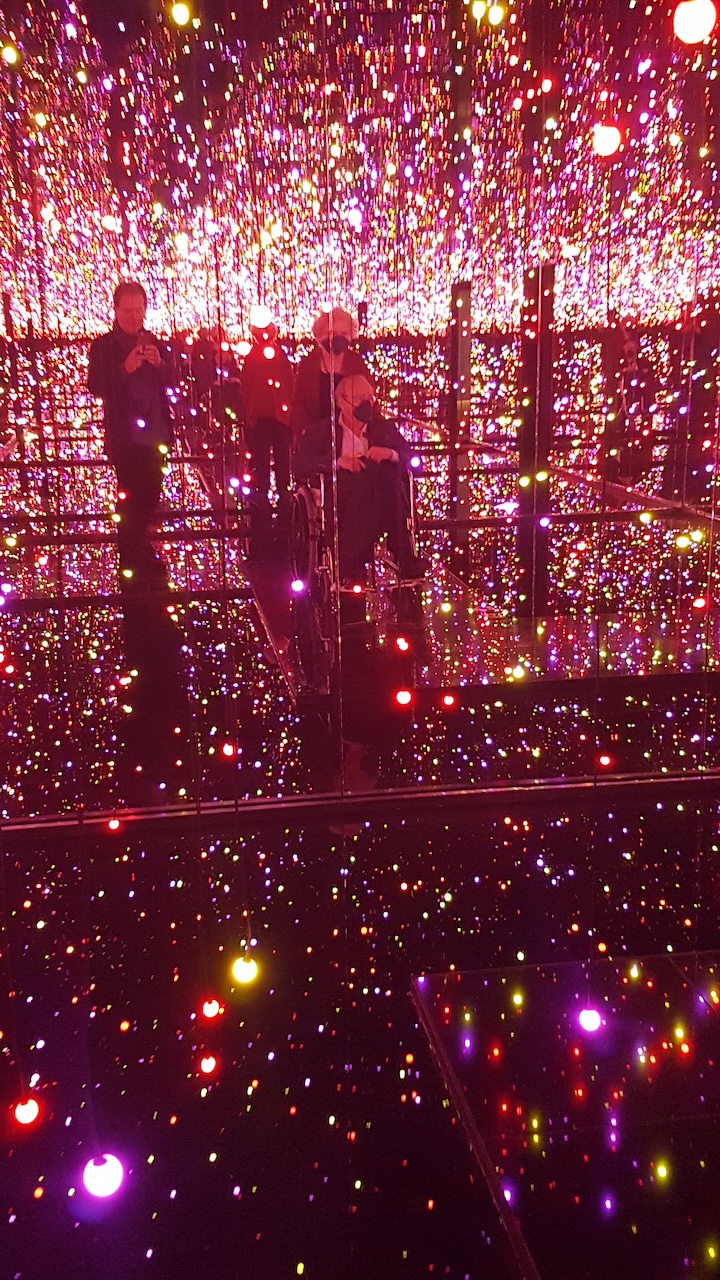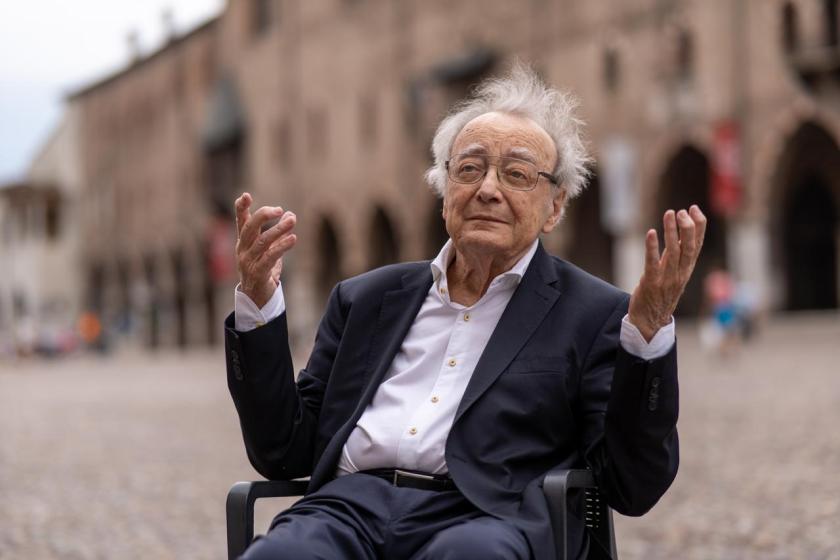Alfred Brendel’s death earlier this month came as a shock, but it wasn’t unexpected. His health had gradually deteriorated over the last year or so, and I was fortunate to see him just a few days before he died. I visited him for one of our regular film nights – evenings when we’d eat dinner together, prepared by his partner Maria, and then watch a movie. On this occasion we’d decided to take in the recently-made German documentary about Leni Riefenstahl. It struck me that it would be a perfect choice, given Alfred had grown up watching Nazi films in the Zagreb cinema his father had run in the 1930s.The press link a friend had given me was no longer active, and we ended up watching a film I’d made several decades ago about the French maverick composer Edgard Varèse, a documentary that had played a part in our relationship.
Brendel has always been identified with his exceptionally sensitive and intelligent interpretations of the Austro-German classical tradition: Mozart, Haydn, Beethoven, Schubert and Liszt. He was widely recognised as one of the very greatest pianists of our time. It’s less well-known that he was an enthusiastic connoisseur of 20th century music, and keen to hear the latest compositions of composers such as Ligeti, Kurtág, Adès or Larcher. He was a big fan of Xenakis and Varèse, and it was after he’d seen and liked my documentaries about those two musical explorers that he agreed for me to make a film about him, following ten years of persistent asking.
Even when he finally agreed, the then head of BBC Music wouldn’t at first commission it. Brendel suffered, perhaps, from unacknowledged xenophobia – he was not one of us – and although he’d chosen to live in London, he wasn’t as welcome as he’s been more recently. He was often dismissed as an ‘intellectual’ – a mark of honour and esteem on the continent, but something of a stigma in Great Britain. His playing was deemed too cerebral; he was too clever by half. I’d grown up in Paris and Vienna, and none of his extraordinary and wide-ranging erudition ever put me off. I was always bemused and enchanted by his massive library, floors and shelves of books that encompassed poetry, visual art, architecture, philosophy, literature and music. For him, everything was about expressing the most profound depths of humanity’s inner world through the filter of culture. There had to be balance between feeling and intellect.
He left a Vienna that had been ethnically cleansed after the Anschluss of 1938, when the Nazis marched in and started destroying the capital’s Jewish community. Vienna, in which many supposedly intelligent people talk to this day of Austria being “Hitler’s first victim”. I related so strongly to the Alfred Brendel who, along with Thomas Bernhard and Michael Haneke, turned his back on a form of polite hypocrisy that was masked by the veneer of the gemütlich – a kind of comfort zone in which the coffee house, Sacher Torte and whipped cream were signs of ultimate refinement. The pianist came from a thoroughly middle-class and uncultured background – parents who loved their only child, but who failed to supply him with the Bildung or cultural grounding considered essential in the Germanic world. He found Vienna stifling – even though nourished by the sublime irony of the novelist Robert Musil and the essayist Karl Kraus. He found a home in London, hanging out with the likes of Isaiah Berlin, Bernard Williams, Harold Pinter and Marina Warner, to name just a few, experiencing a life of the spirit that wasn’t shackled by dogma, received ideas or prejudice, always questioning.
I first met him in my teens. My French step-mother the French pianist Marie-Françoise Bucquet, had been one of his inner circle, and we visited him in his Viennese apartment. I remember being told that he owned Beethoven’s chamber pot. That bizarre notion stuck with me, although I later discovered that it was pure invention. And yet not so unlikely, as he surrounded himself with weirdness – images of devils and monsters, Liszt’s death mask, hung next to a gruesome Tyrolean horned face-covering, along with evocations of the absurd that seemed to keep him sane. As teenagers, my brother and I bought him a stuffed baby crocodile dressed in a cap and crinoline. We’d spotted it in New Orleans. It stood guard forever in Brendel’s “Chapel” as he mischievously called the room in which he kept two Steinways and practised every day. A fan of Beckett’s and not expecting Godot’s imminent arrival, he was an ardent atheist who worshipped at the altar of the absurd.
 It wasn’t surprising that he should have been an expert on Dada, about which he wrote an illuminating essay. For him, all politicians were as ridiculous and self-inflated as Alfred Jarry’s Ubu. It’s not so well-known - though hardly surprising – that his eldest child, Doris, is a London-based punk singer-songwriter. Behind the mask of the thinking man, there was a healthy dose of gentle craziness, a wayward streak that he not only celebrated, but which, to my mind, fuelled the powerful emotions he communicated through his playing, beneath what he was fond of calling – quoting the German philosopher Novalis, a “veil of order”.
It wasn’t surprising that he should have been an expert on Dada, about which he wrote an illuminating essay. For him, all politicians were as ridiculous and self-inflated as Alfred Jarry’s Ubu. It’s not so well-known - though hardly surprising – that his eldest child, Doris, is a London-based punk singer-songwriter. Behind the mask of the thinking man, there was a healthy dose of gentle craziness, a wayward streak that he not only celebrated, but which, to my mind, fuelled the powerful emotions he communicated through his playing, beneath what he was fond of calling – quoting the German philosopher Novalis, a “veil of order”.
Those emotions were always visible in close-up: that’s one of the joys and privileges of making films about musicians, not least when I shoot them myself, rather than depending on a more distanced camera-person. There is an intimacy that only the camera, and sensitive handling can afford. Having started as the reluctant subject for a documentary, Alfred gave himself wholeheartedly to the filming process. He was, in spite of a certain shyness, a consummate performer. You can see that trait in some of the childhood photographs we used in “Man and Mask” the portrait film I made in 2000. He stares out, very directly, a mixture of charm and defiance. It’s almost a cliché to say that masks enable the wearer to be more him - or herself. At first masks seem to offer a kind of armour, but they are also tools for liberation. Not surprisingly the ancient Greek god most associated with the mask – and theatre – is Dionysus, often known as the “Loosener”, the one who facilitates derangement and free expression. Alfred Brendel’s lifelong play with masks, not least his own incredibly expressive face in the act of performance, reflected a surprising facility with emotional expression, so radically different from the cerebral persona most frequently associated with him.
The “veil of order” is essential to the greatest art, music as much as painting, but it mustn’t be overbearing. When I visited Bavaria a few years ago to film a stained-glass manufacturer, Alfred insisted that I make a detour to visit some of the High Baroque churches and monasteries in the area. He clearly loved the excess of the décor, cascades of white and gold, laden with putti and angels, as much – paradoxically - as he cherished the minimalism of French Romanesque church architecture, a subject he knew as thoroughly as many experts. Visiting art exhibitions with him was always a delight. He engaged with the work, loved to talk about it, and knew exactly what he liked or what he dismissed as excessively kitsch. I shan’t easily forget his expression of awe, as he was wheeled into the Yayoi Kusama Infinity Mirror Rooms at the Tate Modern (pictured above left: Brendel in wheelchair with Covid mask) I imagined he might be a little freaked out, but he delighted in the experience like an eager child, all amazement and smiles.
That was perhaps one of the most distinctive things about Alfred, better known by those closest to him. Apart from his reputation as an absurdist poet, he was primarily thought of as a pianist of exceptional intelligence, and a brilliant essayist about music. And yet, for him laughter was perhaps the most truthful response to the paradoxes and contradictions of the human condition. There was something of the Trickster about him: he was able to constantly move outside the box, and take immense pleasure in being at play. Having said that, he was also gifted with one of the most finely tuned intellects I’ve known. It was, paradoxically, this combination of playfulness and rigour, strict discipline and a wide-eyed capacity for wonder, that placed him in a category of his own, never at all pretentious, or in love with the trappings of fame: a true master, and a Renaisssance man. He will be missed, but he has left behind a fabulous legacy and take on life that will continue to nourish us all.
Below: Watch an extract from my film Alfred Brendel - Man and Mask (2000) with a visit to the extraordinary Franz Messerschmidt heads at the Belvedere Museum in Vienna, some thoughts about the nature of a masterpiece, and a rehearsal of Schubert's Winterreise with Matthias Goerne














Add comment